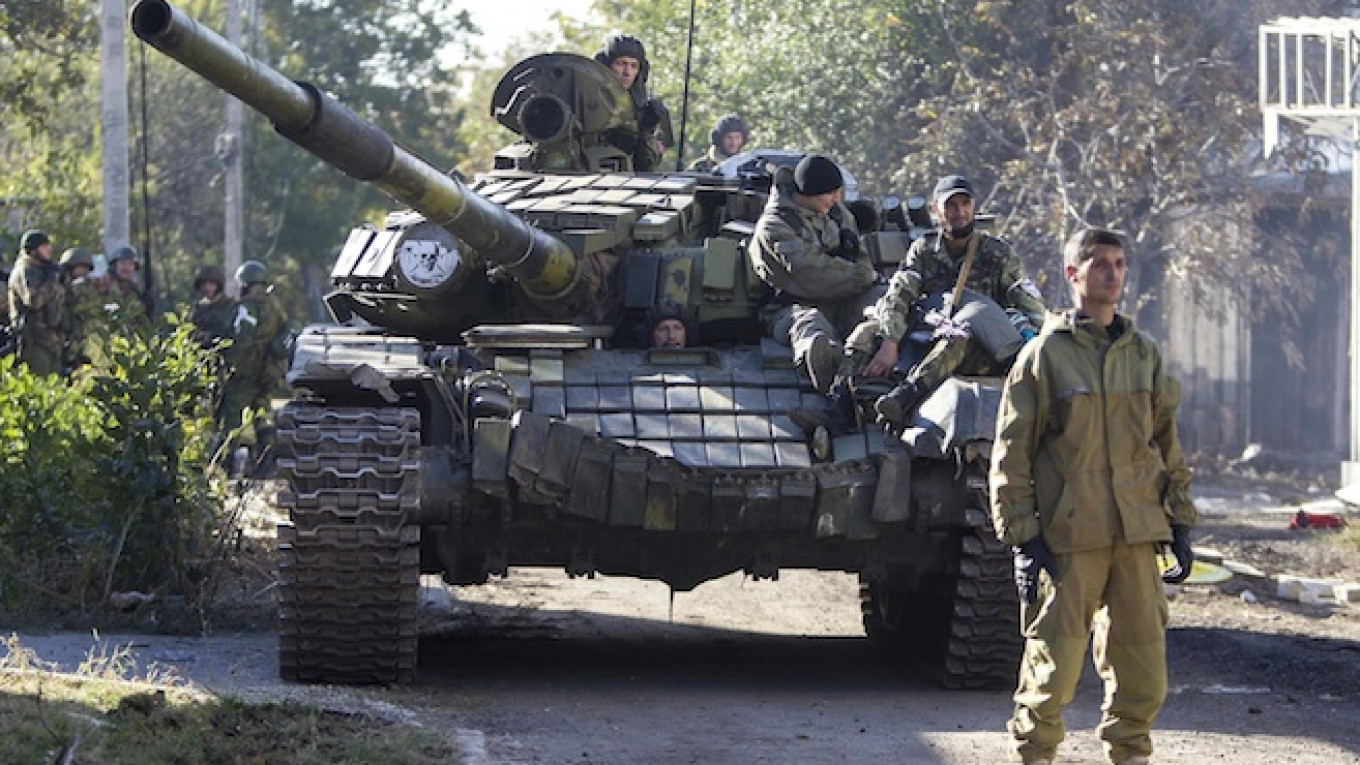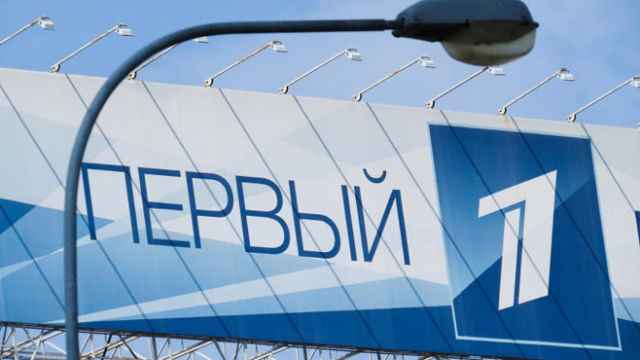A congress of Russian intellectuals has appealed to the head of state-run Channel One television to acknowledge "falsifications" in its reporting on Ukraine, holding the network accountable for the deaths of young Russians who were moved to go and fight there.
The congress told Channel One chief Konstantin Ernst that owning up to at least some of his network's fabrications would demonstrate a commitment, formally backed by Moscow, to helping end the violence in the east of Ukraine, according to an open letter published Monday on its website.
"It's not a secret to anybody that leading Russian television companies resort to various falsifications when covering the Ukrainian crisis," the letter said. "The authors of those falsifications share the responsibility for the blood that is being shed in the brotherly country."
"One of the most tragic consequences of the spread of that disinformation is the desire of many hundreds of brave idealists from our country, most often young people, to immediately rush to Donbass and enlist in various armed units to protect peaceful civilians against the alleged threats of genocide and terror," the letter added. Donbass, the Russian abbreviation for the Donetsk Basin, is a common name for the eastern Ukrainian region that includes Donetsk and surrounding areas.
The letter, which was adopted earlier this week by the Congress of Intelligentsia Against War, Self-Isolation of Russia, and Restoration of Totalitarianism, comes amid reports of scores of Russian men fighting and being killed in eastern Ukraine.
A Russian woman, Zhanna Zalogina, whose 18-year-old son was recently killed in Ukraine told the RFE/RL news site in an interview published Thursday that the teenager had been driven to join the war by "false information" spread by state-run media.
"He said it pained him to watch what they showed on the news, children and mothers being killed, people in need of help," Zalogina was quoted as saying. "He wanted to help, that's why he went there."
In a newscast that prompted objections from some opposition politicians and journalists, Channel One aired what it described as an eyewitness account this summer of a 3-year-old boy who was tortured and crucified by the Ukrainian military.
Another major state-run network, Rossia, passed off footage from its own 2012 report about a gunfight in the North Caucasus as evidence of recent violence against Russian speakers in Ukraine.
While some Russian public figures expressed outrage at the crucifixion claim, Channel One never acknowledged any inaccuracies in the account, which the congress of intelligentsia singled out as "one of the most frightening examples of those falsifications, which has been turned into the symbol of terror."
"We are appealing to you to clear the conscience of the Channel One team, and your own conscience of at least partial blame for that falsehood," the open letter to the network's chief said.
Russian fighters in eastern Ukraine include professional soldiers, who Moscow insists have joined the fight as "volunteers" on leave from their regular army duty, and an array of nationalists, vigilantes and idealists who have travelled to Ukraine after being recruited through social media. Zalogina, the woman whose son was killed in Ukraine, told RFE/RL that he had been recruited online.
The congress of intelligentsia appealed to Ernst to carry out an internal investigation into the "reasons for intentional falsehoods making their way into newscasts," and the network's failure to acknowledge any "deception," despite the public outrage it had caused.
The Rossia channel has also been called to account for its substitution of footage. When the fake was exposed, the chief of a government media holding that includes Rossia brushed it off as an "accidental error."
A Message from The Moscow Times:
Dear readers,
We are facing unprecedented challenges. Russia's Prosecutor General's Office has designated The Moscow Times as an "undesirable" organization, criminalizing our work and putting our staff at risk of prosecution. This follows our earlier unjust labeling as a "foreign agent."
These actions are direct attempts to silence independent journalism in Russia. The authorities claim our work "discredits the decisions of the Russian leadership." We see things differently: we strive to provide accurate, unbiased reporting on Russia.
We, the journalists of The Moscow Times, refuse to be silenced. But to continue our work, we need your help.
Your support, no matter how small, makes a world of difference. If you can, please support us monthly starting from just $2. It's quick to set up, and every contribution makes a significant impact.
By supporting The Moscow Times, you're defending open, independent journalism in the face of repression. Thank you for standing with us.
Remind me later.






